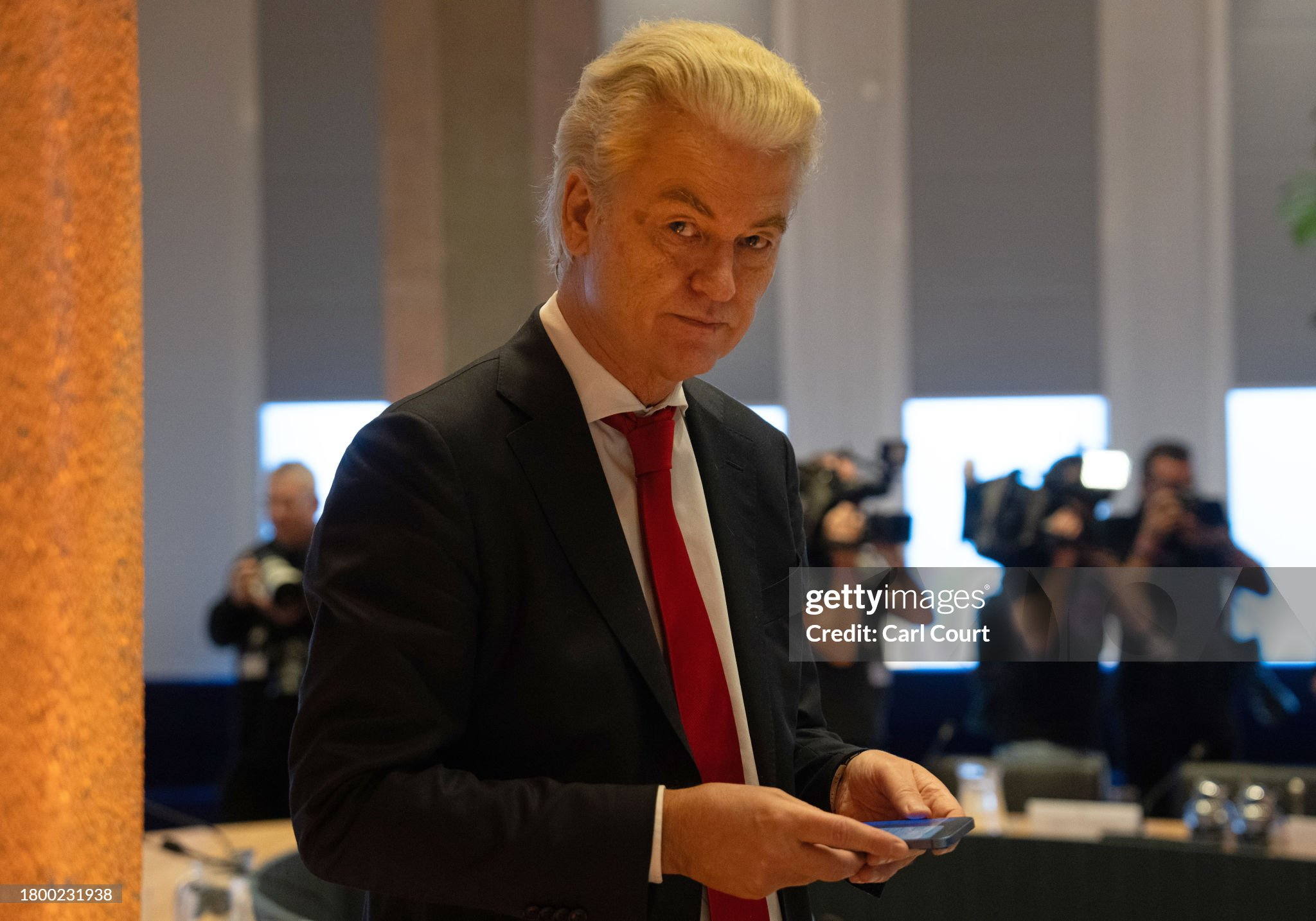 THE HAGUE:--- The Dutch government has been thrown into turmoil as the coalition led by Prime Minister Dick Schoof collapsed on Tuesday following the withdrawal of support from Geert Wilders and his far-right Party for Freedom (PVV). The dramatic decision comes after months of tension within the government over disagreements on migration policy, culminating in a political crisis that could reshape the country's future.
THE HAGUE:--- The Dutch government has been thrown into turmoil as the coalition led by Prime Minister Dick Schoof collapsed on Tuesday following the withdrawal of support from Geert Wilders and his far-right Party for Freedom (PVV). The dramatic decision comes after months of tension within the government over disagreements on migration policy, culminating in a political crisis that could reshape the country's future.
Wilders' Ultimatum and Key Points of Contention
Geert Wilders, a polarizing figure in Dutch politics known for his staunch anti-Islam and anti-immigration stance, had increasingly clashed with his coalition partners over migration policy. Wilders pushed for a strict 10-point plan that aimed to significantly curb immigration. Key proposals in his plan included:
- Halting asylum family reunifications to prevent immigrants already in the country from bringing in their relatives.
- Returning Syrian refugees to Syria despite the ongoing instability in the region.
- Closing national borders to asylum seekers and ceasing the construction and operation of asylum centers.
- Using the military to guard the borders, a proposal that drew heavy criticism for militarizing immigration management.
Wilders argued that his party joined the coalition under the premise of enacting what he called "the strictest asylum policy in Europe." However, his frustrations grew as he accused the coalition of dragging its feet on implementing these measures. According to Wilders, “Our responsibility for this cabinet therefore ends here.”
Reactions from Coalition Members
The collapse followed a tense emergency meeting on Monday night during which members of the coalition attempted to reach a compromise. Prime Minister Dick Schoof's government, which represented a fragile alliance of four parties, struggled to balance Wilders' hardline demands with the more moderate positions of the other coalition partners.
Caroline van der Plas of the populist Farmers Citizens Movement party openly criticized Wilders’ approach, stating, “The Netherlands does not like quitters.” Dilan Yesilgöz, leader of the center-right People’s Party for Freedom and Democracy, expressed frustration, saying, “If your goal is to blow things up, just say so.”
Despite repeated attempts to find common ground, there was no consensus on Wilders’ proposed policies. His withdrawal of support leaves the coalition without the necessary parliamentary majority, plunging governance into uncertainty.
Political Implications and Potential Outcomes
With the PVV pulling out of the coalition, the country faces significant political implications. Prime Minister Schoof now leads a government with only 51 seats in a 150-seat parliament, effectively rendering it powerless. Opposition leaders have begun calling for immediate elections to reestablish governance.
If elections are called, early polls suggest the PVV may lose some parliamentary seats but could still emerge as the largest single party. However, forming a new government will prove challenging within the Netherlands’ fractured political system, marked by a constellation of parties, none of which has traditionally won an outright majority.
On the other side of the spectrum, center-left and center-right parties are expected to gain momentum in a possible election. This shift could lead to a broader coalition aimed at counteracting the far-right influence and pursuing more moderated policies.
A Country in Crisis
The timing of the coalition's collapse could not be worse. The Netherlands is set to host a NATO summit in The Hague in just a few weeks, an event that would typically require political stability and leadership. Instead, the country finds itself grappling with internal chaos.
Migration has been a flashpoint for debate in the Netherlands and across Europe. While Wilders champions draconian restrictions, critics argue his policies are unrealistic and risk tarnishing the Netherlands' image as a proponent of human rights and international law.
Looking Ahead
The collapse of the Dutch coalition has spotlighted the deep divisions within the country over migration. It has also raised broader questions about the political trajectory of the Netherlands and its role on the European stage. Whether this crisis leads to a reevaluation of migration policy, a political reset through elections, or prolonged instability remains uncertain.
The coming weeks will reveal whether the Netherlands can emerge from this crisis with a renewed commitment to navigating its complex social and political landscape or whether it will continue to struggle with the divisive politics brought to the forefront by Wilders and his Party for Freedom. One thing is clear: the decisions made in the following months will shape the country’s future for years to come.











